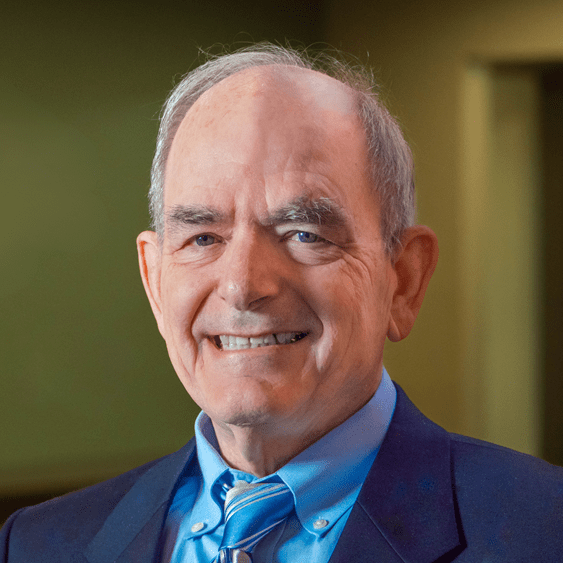The Mentoring Advantage
 By Dr. Albert (Ace) Goerig
By Dr. Albert (Ace) Goerig
Every endodontic career begins with transitioning from residency to private practice. The choices made during this period can significantly influence short- and long-term career success.
While practice ownership is a desired goal for many new endodontists, the economics of high student debt coupled with the major investment costs of a startup or practice purchase seem prohibitive at first. For many young endodontists, associating in a practice after graduation can help to build financial stability and reduce debt.
Associateships can also provide another incredibly valuable advantage for endodontists beginning their career: being mentored by an experienced practitioner in private practice. Rather than the low rung on the ladder to professional success, an associateship can be the springboard to enhanced clinical and practice knowledge that will bolster future goals. Whether the associate stays in an employment position or eventually moves on to their own practice, the knowledge gleaned from a mentor relationship accelerates success.
Direct Clinical Mentoring
It is in the interests of the practice owner that associates can complete cases effectively. New associates come out of their residency with educational knowledge and some practical case experience, but they fall short on the real-world variety of clinical conditions often encountered in practice. Mutual success is improved when the owner doctor recognizes and develops a direct clinical mentoring environment with the associate.
Among the first benefits is providing the associate with diagnostic insights and treatment planning guidance. Easy cases are easy, but when complicating factors are revealed in testing and 3D scans, reviewing a challenging case with a more experienced endodontist is a great advantage to the young doctor. No one wants a failed case, and a few moments reviewing case records together can boost confidence in achieving a successful outcome.
The second benefit of clinical mentoring is the opportunity to learn over-the-shoulder from the owner endodontist. Every endodontist builds on the clinical techniques that give them the greatest predictability for success, and it’s highly instructive for new endodontists to explore the clinical choices and methods that the owner doctor uses. Clinical tips can range from surgical techniques, complex twisting canals, broken files, or even something as fundamental as suturing.
The third benefit of clinical mentoring is learning how to develop and maintain clinical focus during treatment. This includes how to delegate to and work with a dental assistant to complete cases smoothly. Great dental assistants significantly improve the doctor’s ability to complete cases efficiently and learning how to communicate and coordinate the patient’s treatment with a highly trained dental assistant is a vital skill. A great mentor will often assign their most experienced dental assistant to support the associate at first.
The fourth benefit of direct clinical mentoring is learning how efficient diagnosis and treatment enables the associate to achieve improved clinical productivity. That allows the schedule to be optimized as the associate’s clinical mastery increases, leading to better availability for patient cases, and improved flexibility in the schedule for emergency patients in pain.
Observational Mentoring
While the primary job of an associate is to provide clinical care without responsibilities for practice management, associates benefit from observing the entire practice environment. Any associate who foresees future practice ownership (possibly even in the practice they are associating through a future buy-out of the owner), can learn much about practice operations and leadership in advance.
One aspect that every practice owner needs to pay attention to is managing referral relationships and marketing. Associates are generally hired to increase the clinical capacity of a practice when the number of referred cases exceeds the availability of the owner doctor (assuming the owner doctor isn’t hiring an associate to facilitate a reduction in their own schedule). The right level of practice success indicates referral relationship and marketing success that young doctors can learn from.
Likewise, the non-clinical operations of the practice are incredibly useful for observational mentoring. This includes observing how the practice administrative team functions, operational aspects like insurance, payments and accounts receivable, team leadership by the owner doctor, financial goals and decision-making. It’s an inside view of what it takes to own and manage a successful endodontic practice, and it can dramatically shorten the learning curve when an associate eventually moves into practice ownership themselves.
Not all Associateships are the Same
Even though mentorship through associating is a wonderful opportunity for a young endodontist, it is important to realize that not every associateship is the same. Not all owner doctors have the same aptitude to be mentors, and their practices may not be perfect examples of business success. It does require some self-leadership and effort by the associate to make the best of whatever situation they are in.
The good news is that there is high demand for associates in endodontics. So, young endodontists looking for associateships can carefully select the practices they end up working for. Ideally, potential associates should look for practices that are highly successful with an owner doctor who is welcoming, consultative, lifestyle-focused, and deeply cares that the associate achieves success, both professionally and financially. That attitude sets up a productive and collaborative relationship leading to enjoyable days driven by mutual support for excellent patient care.
Dr. Ace Goerig is an ABE Diplomate and owner of Endo Mastery. For more information, visit www.endomastery.com.
